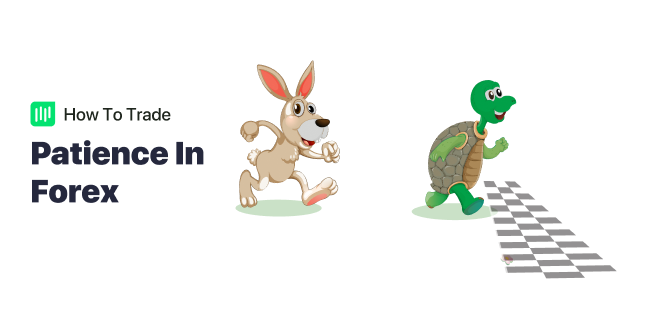Controlling Emotions That Force Us to Trade
Now that we have explored emotions that make us hesitant to trade, we will take it a step further. We will take a deep dive into emotions that prompt us to become hyperactive in the market. In essence, these are queues that make us do too much when forex trading.
In most cases, more is better. Not in the stock market or forex – more is worse! Overtrading is one of the most dangerous pitfalls of being an active trader. And, greed and impatience are two emotions that entice us to become too aggressive in the marketplace.
It’s a fact that all traders have fallen victim to greed and impatience at one time or another. However, understanding how these emotions impact trading psychology can eliminate getting caught up in this juggernaut of trading impediments.
Want to learn more about emotions in trading? Read on!
Financial Markets 101: Greed & Impatience
The first chapter in any book about active forex trading should be titled “How To Manage Your Trading Emotions.” It’s a topic vital to rational thinking for anyone involved in the markets.
As currency traders, we buy and sell pairs repeatedly, day in and day out. In many ways, our past performance is indicative of how well we are doing our job. It’s an expression of how good we are at managing the rewards and risks involved with forex. If we are making money in the markets then we are a success; if we are losing money, then our trading mistakes are getting the best of us!
The number one detractor of solid, consistent trading is human emotions. Two that plague many traders are greed and impatience.

Greed
Bulls make money, bears make money, and pigs get slaughtered.
Bulls make money, bears make money, and pigs get slaughtered.
Have you heard this popular Forex saying before? It means that if you are a greedy pig, then chances are you are going to lose your money. It may sound harsh, but it’s the truth. Greediness is the worst enemy of forex players, and yet it is still one of the most common trading emotions in the markets.
So, when does greed typically rear its ugly head? Well, this psychological stimulus usually emerges when traders have a positive experience during trading and want more of it. It’s the crack of forex.
At its core, greed is an increased appetite for risk-taking. It can lead to impulsive trading decisions and shorten anyone’s trading career. That’s why trading psychologists believe that the secret to being a successful trader is to know when greed is undermining your success. Or, in other words, know when to call it quits and take your profits!
Only if it was that easy, right? Our advice? Don’t let greed overpower your strategy.
When your trades are going well, it’s perfectly natural to be excited about the potential for even greater gains. But, it’s during moments like that when you can’t allow greed to sneak up on you and destroy your trading account.
Instead, stick to your trading strategy. If your indicators are telling you that it’s time to close and take your profits, listen to them. Close your positions, get your profit, and leave. Don’t keep your trades going in the hope of “making a little more.”
Whilst it’s easier said than done, it’s crucial that you identify the sensation of greed when it comes, acknowledge it, and let it go. Remember, you’re not a greedy pig! Stick to your plan and avoid the slaughterhouse.

Impatience
Patience is integral to discipline and you must have patience when placing trades, analyzing the markets, and evaluating your performance. After all, Rome wasn’t built in a day; neither were the best traders in the market.
Without a doubt, impatience is an extremely negative psychological stimulus that can lead to failure if not controlled. And, although instant gratification is a common desire in life, you have to be patient when trading forex.
We all know that the almighty dollar is a moving force in forex. But, currency trading isn’t a get-rich-quick scheme – we guarantee that you ain’t gonna become a billionaire overnight.
Ultimately, impatient traders tend to make rushed decisions and assume way too much risk. In their heads, they are increasing the potential payouts, but what they don’t realize is that they’re simultaneously increasing the size of each losing position. And, more often than not, such decisions lead to losses rather than gains.
And what happens after? Among other things, overtrading, doubling up, and revenge trading. Here’s the deal: impatience leads to dissatisfaction and feelings of discouragement. These types of trading emotions prompt many individuals to want to quit.
When placing trades, you must be patient and wait for the right opportunity to enter the market. This type of swing, intraday, or day trading psychology is far superior to jumping into a trade just because “you want to.”
Patience grasshopper, patience!
Reduce the Negative Impact of Emotion on Your Trading Strategies
A good trading strategy mitigates the negative influences of greed and impatience. No matter the market conditions, robust strategies help keep the forex trader on track.
No matter what happens in the market, your primary goal is to make more money from your winning trades than you lose. This is personal finance 101: don’t lose too much money while seeking profit! Two exercises can help you accomplish this feat: implementing money management and adhering to a concrete trading plan.
Money Management
Perhaps the biggest tool for keeping your emotions in trading tenable is money management. It ensures that you are getting the most out of your risk capital. It aligns risk to reward and promotes responsible use of leverage.
When you are cognizant of your cash when you trade, the “gambling mindset” is all but eliminated.
The Trading Plan
No matter what, have a plan! A solid trading plan outlines when and how you are to enter and exit the market. When you trade with a plan, you adhere to concrete rules for entering and exiting trades.
Make no mistake, trading with a plan is the best way to control your emotions in the forex market. And, after a hard day of trading your plan, be sure to wrap it up with an entry in your trading journal!
Learn to Manage Your Emotions in Trading
As the old saying goes, a little knowledge is a dangerous thing! Without a doubt, placing trades before you’re certain about your plan of attack is a one-way ticket to emotional trading. Be sure to nurture your trading psychology by building a rock-solid approach to the markets. Don’t worry; it’s not that difficult to do. Trust your analysis, follow your strategy, and remain patient. Trust us, the discipline will pay dividends!
In partnership with our recommended partner
Wait!
"Join our Trade Together program and interact with us in real-time as we trade the markets together."
